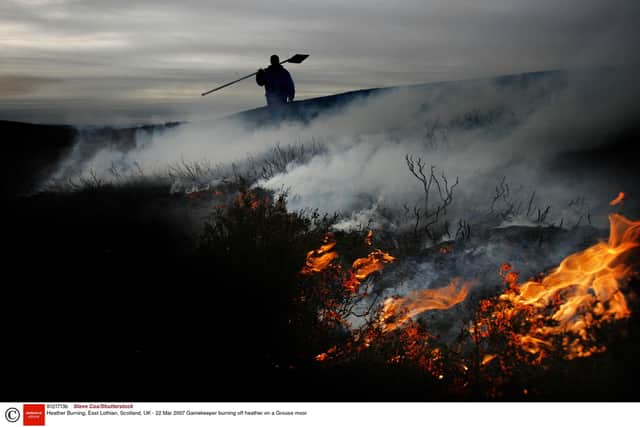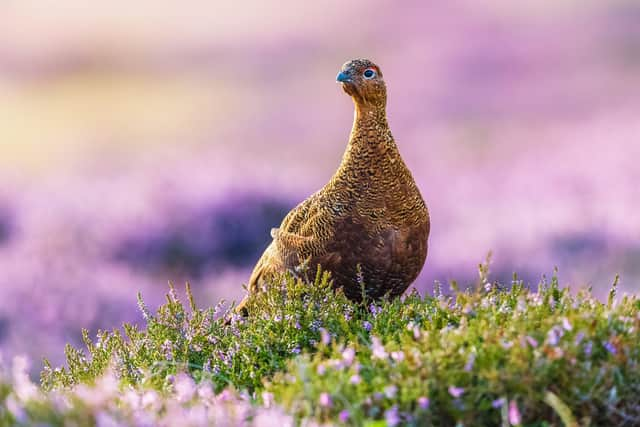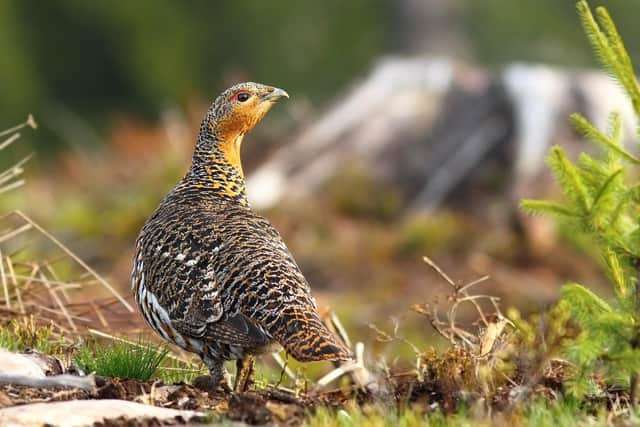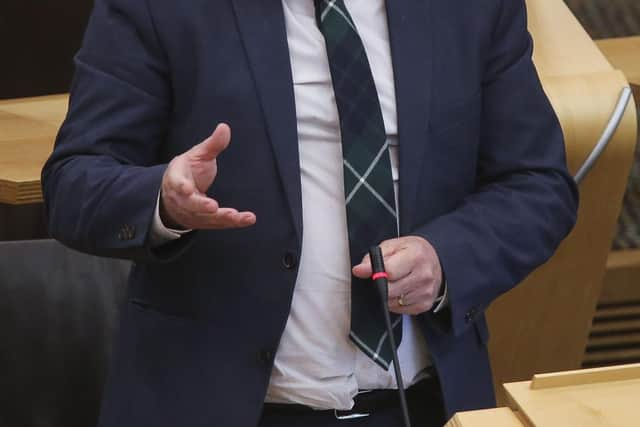Scotland's Wildlife Management and Muirburn Bill requires more clarity on how policy will work in practice, MSPs warn
More clarity is needed about how provisions of the upcoming Wildlife Management and Muirburn (Scotland) Bill would work in practice, a new report from MSPs has said.
Members of the Rural Affairs & Islands Committee, the lead committee responsible for scrutiny of the Bill, have raised questions over various aspects of the document, including on who is able to suspend a shooting licence, and the policing of wildlife incidents.
Advertisement
Hide AdAdvertisement
Hide AdIntroduced in March, the Bill contains measures to address issues such as wildlife crime and raptor persecution. The proposals also look at a more strict licensing system for muirburn – the controlled burning of vegetation.


It is at stage one and due to be debated in Parliament early next month.
The committee agreed it is essential that increased regulation of wildlife traps, grouse moor management, and muirburn is proportionate, transparent and workable. The new policy must also balance the protection of birds of prey and other protected species while continuing to sustain rural businesses and employment on and around moorlands, it said.
One concern the committee’s report raised was the Bill’s proposal that NatureScot can (as licence administrator) suspend or revoke a licence – for shooting, for example – “simply by the recording of a complaint or report”, even when the nature agency is not satisfied that an offence has been committed. NatureScot would also be able to modify a licence at its own discretion.
The committee said there has been “strong complaints” expressed by potential licence applicants for greater reassurances that this power would not be used in response to vexatious complaints. Stakeholders reported these changes would “create legal and operational uncertainty for no public benefit.”


The report said the Bill’s proposal to extend the Scottish SPCA’s investigatory powers also caused concern.
The committee asked for further information about the scope of these powers, and whether these will come into effect before a protocol is agreed with Police Scotland.
Issues have been raised with the Bill’s section on a new licensing scheme for the killing or taking of certain birds (initially red grouse only), otherwise known as “grouse moor management license.”
Advertisement
Hide AdAdvertisement
Hide AdOne of the provisions calls for licences to only be granted or renewed for a maximum period of one year.


Certain groups, including the RSPB, have advocated for this regulation. The charity said “a considerable amount of witness evidence proves that crimes against raptors are inextricably linked to grouse moor management.”
But the committee’s report said the proposed licensing period should be extended. It said the proposal had triggered a strong response from stakeholders who described the idea of an annual licence of land for killing and taking of birds as "frankly idiotic.”
The Bill’s policy on wildlife traps also prompted calls for more clarification.
Earlier this month the Scottish Government signalled its intention to press ahead with a full ban on snares, which includes the newly developed “humane cable restraints” (HCRs).


The decision came after a debate where stakeholders, including the Game and Wildlife Conservation Trust (GWCT), presented evidence showing HCRs are more advanced and have improved welfare standards to the traditional snare. They said the traps play a vital role in conservation and livestock protection.
Animal charities, however, have repeatedly disputed these claims and insist a snare is a snare and should be banned for welfare reasons.
In its report, the committee said it agrees with the ban on the use of "traditional" snares to protect animal welfare, and does not endorse the use of any method of predation control which causes unnecessary suffering to sentient animals or unacceptable risks to non-target species, but that it cannot take a view on the use of modified cable restraints.
Advertisement
Hide AdAdvertisement
Hide AdThe MSPs agreed members of the public should be banned from using or purchasing glue traps, but asked for more information on alternative forms of rodent control appropriate for use in settings where there is an enhanced public health risk. The report also asked for clarification as to why a licensing scheme would not be practical.
MSPs also said under the wildlife trap licensing scheme in the Bill a specific offence for trap vandalism should be included.
Alex Hogg, chairman of the Scottish Gamekeepers Association, said the organisation welcomed this recommendation. He said: “People wrecking or interfering with legal traps risk causing a wildlife crime and they place the public at risk. New international traps for stoats, for example, could cause someone a serious injury if they have been tampered with, and left exposed.”
Other areas the report requiring clarification included the section on measures to address raptor persecution and on muirburn licences.
The report said more information is needed on the levels of recovery of raptor populations on or in the vicinity of grouse moors to enable a view on whether the proposed licence schemes for the use of wildlife traps and for grouse shooting are a proportionate response.
On muirburn, the committee said it supports the principle of additional regulation for muirburn in Scotland, but members have mixed views about whether the proposed licensing scheme is appropriate. They said they agree with muirburn as a way of preventing the spread of wildfires, but any licensing scheme needs to be workable and appropriate to accommodate “a wide variety of practitioners.” The report, therefore, called for further information on an updated muirburn code, with training for practitioners included.
Convener Finlay Carson MSP said: "We hope the clarity the Scottish Government provides in response to this report will enable Parliament to accurately address many of the legitimate but polarised concerns expressed to us by stakeholders."
Kirsty Jenkins, policy officer at OneKind, said: “It is disappointing that the committee has not been able to reach consensus to agree to the measures in this Bill that would bring significant animal welfare benefits.
Advertisement
Hide AdAdvertisement
Hide Ad“The proposed ban on glue traps and snares are particularly important, as both cause unjustifiable suffering to any animal caught in them.
"We commend the Scottish Government for the proposal to ban these devices and are confident that the Parliament, like the majority of the Scottish public, will support a full ban, even if the Committee does not.”
The Scottish Government welcomed the stage one report from the committee and said it will set out its response in due course.
Comments
Want to join the conversation? Please or to comment on this article.